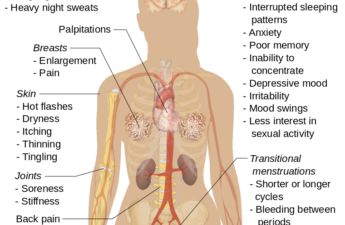Category: Women’s Health
High Court Allows Employers To Opt Out Of ACA’s Mandate On Birth Control Coverage
In a 7-2 ruling in a case involving the Little Sisters of the Poor, the court said employers with a “religious or moral objection” to contraceptives should not be forced to insure women for those services.
COVID-19 raises risk for women who are obese and pregnant, UW study
The findings support categorizing pregnant patients as a higher risk group, particularly with obesity and chronic diseases like asthma and high blood pressure.
Health plans in Washington State must cover 12-month refills for Rx contraceptives
WA State Office of the Insurance Commissioner A state law that took effect Jan. 1, 2018, requires insurers to cover 12-month refills for prescription contraceptives, including the pill. They also must cover these prescriptions if they’re available at your doctor’s office.…
Ibuprofen might make your periods lighter, but it’s not a long-term solution
There’s some evidence non-steroidal anti-inflammatory drugs, like ibuprofen, can reduce menstrual flow. But they shouldn’t be seen as a long-term solution.
What the ban on gene-edited babies means for family planning
Today, it’s not longer “can we,” but rather, “should we” edit human embryos destined to be born?
Women who have more sex may enter the menopause later, study
The point of ovulation to make the body ready for pregnancy, but if a woman is not having any sex, what’s the point of investing energy into ovulation?
Having a Baby May Cost Some Families $4,500 Out-Of-Pocket
For some families, average out-of-pocket health care spending for maternity care jumped from $3,069 in 2008 to $4,569 in 2015.
Extending Medicaid After Childbirth Could Reduce Maternal Deaths
Medicaid pregnancy coverage, expires 60 days after childbirth, leaving many women without health insurance at one of the most vulnerable times in their lives.
Hormonal replacement therapy has benefits and risks
A fortunate few have minimal symptoms, but at least three-quarters of women will have some symptoms. One-third are moderately to severely affected.
Low-risk moms face fewer complications with midwives, UW study finds
Pregnant patients with a low risk of birth problems who are cared for by a midwife in a hospital will likely experienced fewer interventions and complications.
Planning a baby? A fertility app won’t necessarily tell you the best time to try
There are more than 400 fertility apps available, and over 100 million women worldwide are using them. But they require some caution in their use.
What causes miscarriages?
Often women who miscarry will experience feelings of guilt. But miscarriage is very rarely caused by anything the mother did.
What is perimenopause and how does it affect women’s health in midlife?
On average perimenopause lasts for three to four years, usually starting in the mid to late 40s. But for some women it can start as early as the mid-30s.
Low Rates of Vaccination During Pregnancy Leave Moms, Babies Unprotected, CDC
Most mothers-to-be in the US – 65% – have not been vaccinated against the flu and whooping cough, putting their and their infants’ health at risk, CDC reports.











